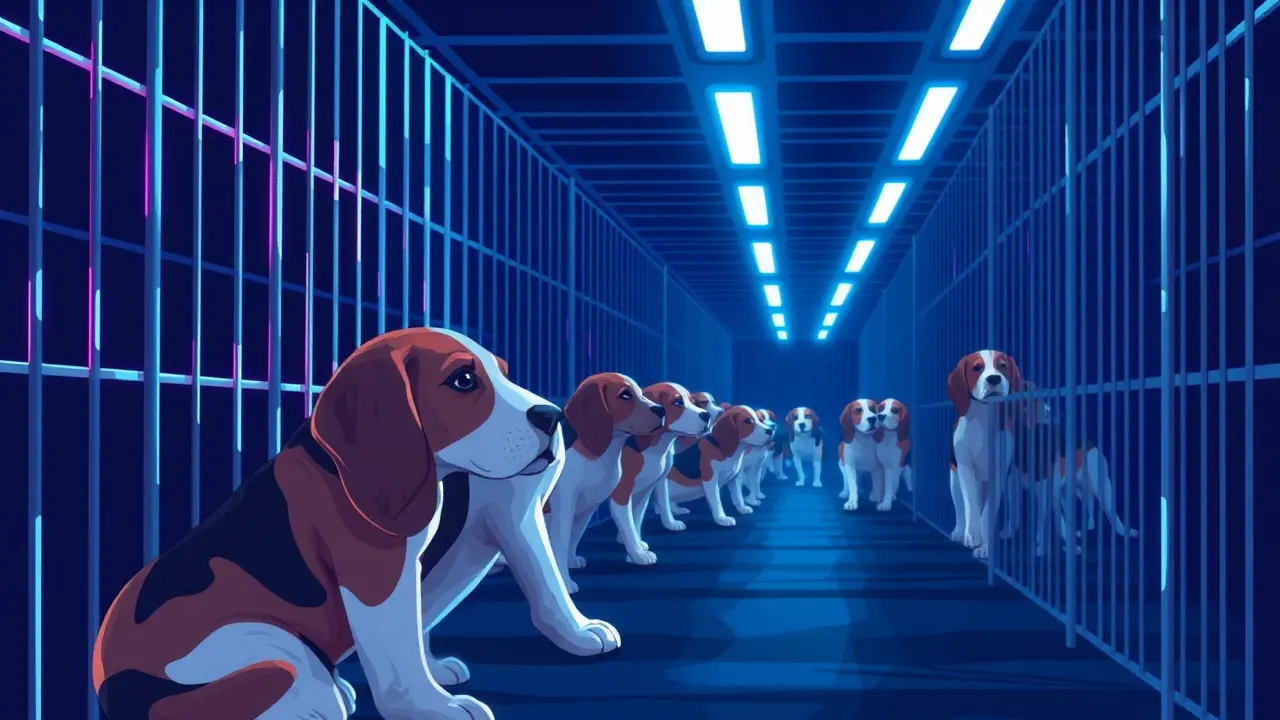
SciencebiologyAnimal Behavior
The End of Dog Experimentation in Labs?
RA
Rachel Adams
12 hours ago7 min read1 comments
The haunting image of beagles confined in wire cages, spinning in circles from boredom inside windowless sheds, represents more than just institutional failure—it signals a potential turning point in our ethical relationship with the animals we claim to cherish. While animal rights advocates rightly contrast our dismal treatment of farm animals with our adoration of pets, this comparison obscures a grimmer reality: we systematically commodify all nonhuman animals, including those we call companions.The recent closure agreements from two major beagle breeding facilities—Envigo in 2022 and now Ridglan Farms outside Madison, Wisconsin, which will cease dog sales by July 2026—suggest that dog experimentation in American labs might be approaching its end. What makes these closures remarkable isn't just the reduction of suffering for thousands of gentle, trusting beagles, but how they were achieved: through relentless pressure from animal advocates who exposed the systemic failure of existing oversight mechanisms.The Animal Welfare Act, which excludes rats, mice, and several other classes of animals, has proven woefully inadequate for even the protected species, with USDA fines maxing out at $14,575 per violation—amounts that the Office of Inspector General has called 'basically meaningless' to violators. At Ridglan, former employees testified about performing crude surgeries without pain relief, including removing prolapsed eye glands and cutting vocal cords to reduce noise from densely packed barking dogs.The real breakthrough came when activists from Direct Action Everywhere, who had removed three beagles from Ridglan in 2017 in what they call 'open rescue,' successfully petitioned a Wisconsin judge to appoint a special prosecutor to investigate the facility for animal cruelty—a momentous judicial affirmation that law enforcement systematically ignores abuse in large-scale animal enterprises. Meanwhile, the animal research community has largely closed ranks, with organizations like Americans for Medical Progress defending Ridglan's role in 'advancing veterinary medicine' despite evidence of profound suffering.This institutional resistance reflects a broader existential war over the legitimacy of experimenting on animals, particularly those Americans treat as family. Yet as Harvard bioengineer Don Ingber acknowledges, 'everyone admits that animal models are suboptimal at best, and highly inaccurate more commonly.' The slow unraveling of dog experimentation demonstrates that our better moral judgments can override institutional inertia, but it also reveals the arbitrary lines we draw between species. With only one major supplier of dogs for lab research remaining in the country, we stand at a crossroads where ethical limits need not oppose scientific progress but could instead constitutive it, pushing research toward more reliable, humane alternatives while acknowledging that the gentle beagle staring through cage bars deserves more than being treated as an expendable commodity in the name of science.
#animal testing
#beagles
#animal rights
#research ethics
#featured
#Ridglan Farms
#Direct Action Everywhere
#Animal Welfare Act
Stay Informed. Act Smarter.
Get weekly highlights, major headlines, and expert insights — then put your knowledge to work in our live prediction markets.
Related News
© 2025 Outpoll Service LTD. All rights reserved.
